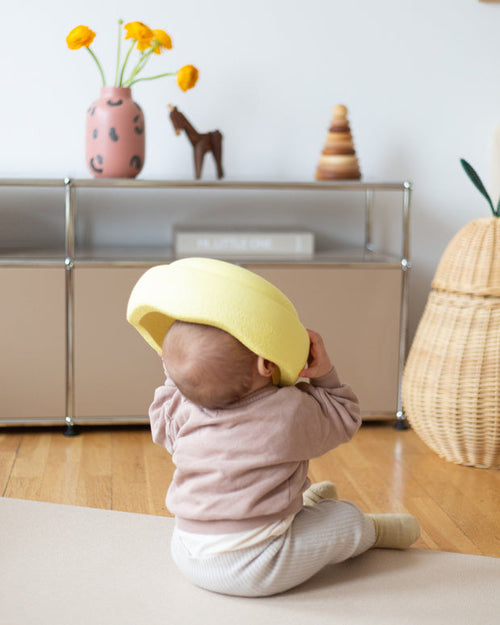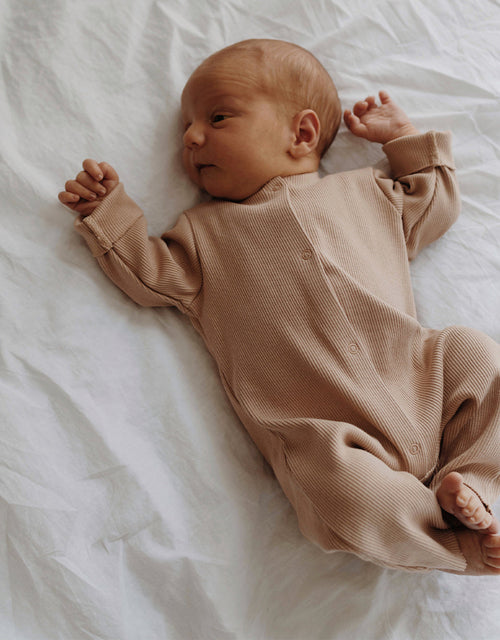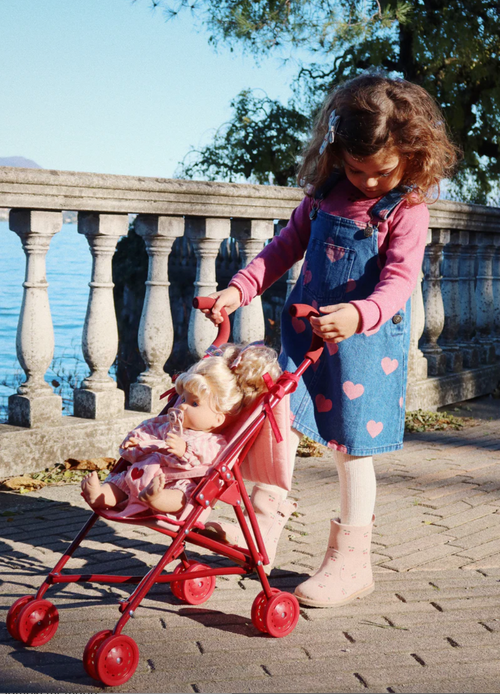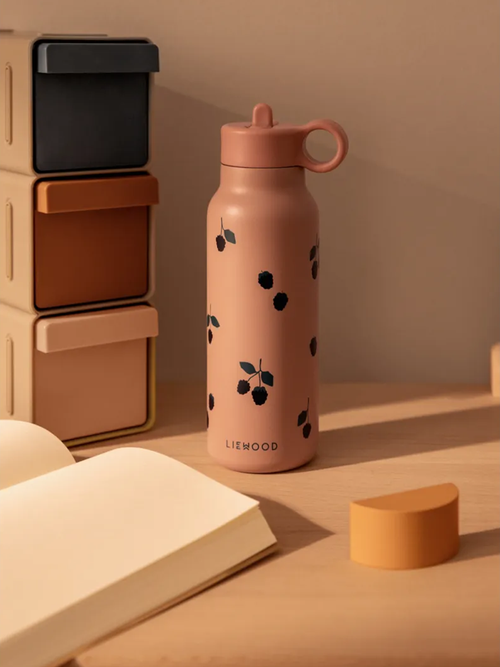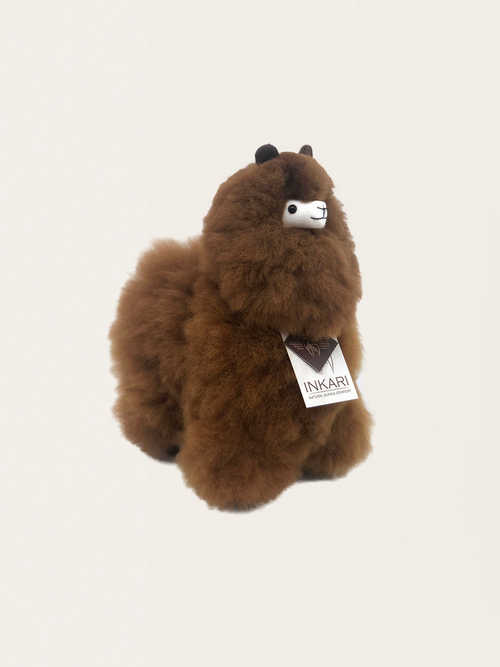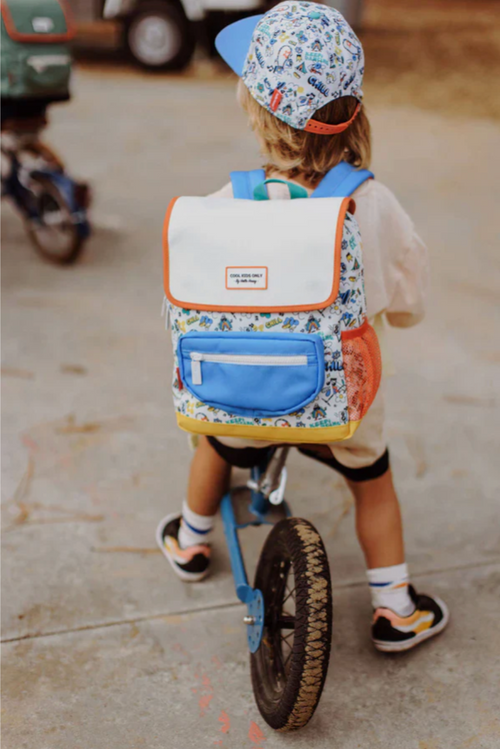Summer is a time of joy and carefree moments outdoors, but it's also a time when children are more susceptible to mosquito bites. These tiny insects can make time spent outdoors unpleasant. Their bites not only cause itching and redness but can also lead to allergic reactions or infections. Understanding how bites work and how to effectively prevent them is key to ensuring your child's complete comfort during summer days. This article will provide detailed information on how to recognize a mosquito bite, alleviate its symptoms, and what steps to take to avoid similar situations in the future. Protecting your child from these insects is incredibly important, so it's worth learning proven methods to minimize the risk of bites. Additionally, we'll discuss how to understand mosquito preferences to effectively repel them and how to use natural and technological solutions to ensure a comfortable and safe summer for your child.
Why do mosquitoes bite children?
Mosquitoes are attracted to many factors, including body heat, exhaled carbon dioxide, and sweat. Children, due to their intense activity and delicate skin, are particularly susceptible to bites. Furthermore, their metabolisms are faster, causing them to secrete more substances that are attractive to these insects. It's also important to note that children have difficulty controlling the urge to scratch itchy areas, which can lead to irritation and infection. Mosquitoes are particularly active in the evenings and at night, and children who spend time outdoors during these hours are more susceptible to attacks. It's also worth remembering that the scents of creams and lotions can further attract insects.
Children are more susceptible to allergic reactions to mosquito bites because their immune systems are not yet fully developed. Some studies indicate that their skin odor, specific components of sweat, or even activity at certain times of day can increase the risk of bites. Parents should be aware of these mechanisms to better protect their children. It's also worth noting that mosquitoes are more likely to target people wearing dark clothing, which can be an additional risk factor for children. Therefore, clothing selection and appropriate preventative measures play a key role in limiting exposure to insects. Understanding mosquito preferences and their mechanisms of action is the first step in effectively protecting your child.
What does a mosquito bite look like on a child?
A mosquito bite typically manifests as a red, itchy bump. There's often slight swelling and redness around the bite site. These symptoms are the result of the immune system reacting to the insect's saliva, which contains chemicals that prevent blood from clotting. Children may experience more intense reactions to bites, making their skin especially sensitive to subsequent bites.
In some cases, allergic reactions may occur. These symptoms include increased swelling, intense redness, and sometimes even a raised body temperature. If these symptoms persist or worsen, it's necessary to consult a doctor. It's also important to remember that vigorous scratching of the bite site can lead to secondary bacterial infections. Parents should monitor their child's skin, paying attention to any alarming signs, such as increasing swelling or pus. Early intervention can prevent further complications. Regularly checking your child's skin after returning from outdoors is a habit that can help you quickly spot the problem and take appropriate action.
What to do if a mosquito bites a child?
If you notice your child has been bitten by a mosquito, act quickly to alleviate symptoms and prevent further complications. The first step is to cool the bite. This can be done by applying a cold compress with a damp towel or using special cooling gels available in pharmacies. Our store offers Zenina Soothing Insect Bite Gel, which is safe for children and provides quick relief.
Another important step is to prevent scratching the bite. Scratching can damage the skin, which increases the risk of infection. To avoid this, distract your child, for example, by playing or applying a protective bandage. If the bite is particularly bothersome, you can use natural soothing remedies such as aloe vera juice or a paste made from baking soda mixed with water. Both have soothing and anti-inflammatory properties. It's also important to wash your child's hands regularly, which will reduce the risk of spreading bacteria to the irritated area. Cooling the skin and practicing good hygiene are essential steps in relieving symptoms. It's also a good idea to start a habit of using soothing products after returning from outdoors, which will reduce discomfort and minimize the risk of infection. Remember, children can sometimes react more emotionally to itching, so it's important to offer support and explain what's going on.
How to prevent mosquito bites?
The best way to avoid mosquito bites is to prevent them. To achieve this, it's worth using several proven methods of protection. A mosquito net is one of the most effective solutions. It can be installed over a baby's crib, stroller, or used outdoors. In our store, you'll find a mosquito net for the Babyzen YOYO² carrycot, which provides an effective barrier against insects.
Another method is to dress your child in appropriate clothing that covers their arms and legs. Light, airy clothes are best, as dark colors can attract mosquitoes. It's also important to use repellents that are safe for children. It's best to choose products made with natural ingredients that won't irritate your little one's delicate skin. Avoiding areas where mosquitoes breed most often, such as areas with standing water, also significantly reduces the risk of bites. It's also worth considering using electronic mosquito repellents, which emit sounds inaudible to humans but effectively repel insects. These modern solutions can provide additional support in the fight against mosquitoes. Regularly using natural repellents, such as essential oils, is also an effective prevention method. It's also worth considering planting mosquito-repellent plants, such as lavender or mint, near your patio or balcony, which will create a natural barrier against insects.
What to do in case of an allergic reaction?
If a child experiences a severe allergic reaction to a mosquito bite, consult a pediatrician as soon as possible. Symptoms such as significant swelling, fever, rash, or general weakness may require the use of antihistamines or topical steroid ointments. It's also important to monitor the bite site for bacterial infections. If you notice the bite starting to fester or redness increasing, a doctor's visit is necessary. Prompt action by parents is crucial to ensuring the child's comfort and safety. Remember that education about prevention and appropriate responses to bites can significantly reduce stress for both the child and parents.
Products available in our store
In our store, we offer products that help protect your child from mosquitoes and soothe any bites. The soothing insect bite gel provides quick relief, and the Babyzen YOYO² carrycot mosquito net is a reliable solution for walks. These products have been carefully selected to ensure maximum comfort and safety for your child. It's also worth exploring our range of additional accessories that can help protect against insects, such as portable mosquito nets and natural mosquito repellent candles. These products can make every family trip to nature more peaceful and comfortable.
Summary
Mosquito bites in children are a common problem, especially during the summer, but with proper prevention and a quick response, symptoms can be effectively alleviated and more serious complications prevented. Using appropriate protective measures, such as mosquito nets and safe insect repellents, is crucial. In our store, you'll find products that will help ensure your child's comfort and health, ensuring a peaceful and joyful summer. Visit our website and choose the perfect products for your family.



